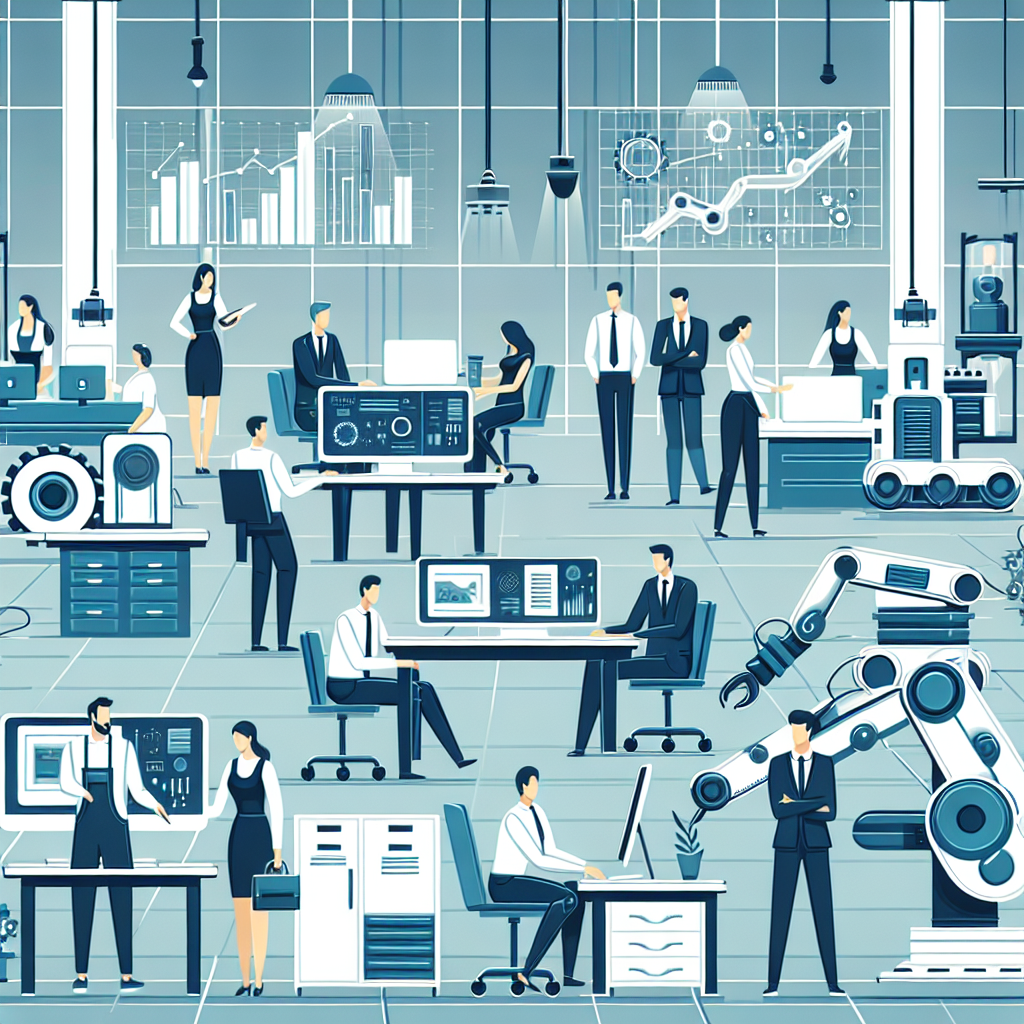Artificial General Intelligence (AGI) is a rapidly advancing technology that is revolutionizing industries across the globe. AGI refers to machines that possess human-like cognitive abilities, enabling them to learn, reason, and solve complex problems without human intervention. In the workplace, AGI is transforming the way businesses operate, streamlining processes, increasing efficiency, and driving innovation. From manufacturing to healthcare, AGI is reshaping industries and creating new opportunities for growth and development.
AGI in the Workplace: How Automation is Revolutionizing Industries
The integration of AGI in the workplace is leading to increased automation of tasks that were once performed by humans. This automation is enabling businesses to operate more efficiently, reduce costs, and improve productivity. In industries such as manufacturing, AGI is being used to optimize production processes, monitor equipment performance, and identify potential issues before they escalate. This level of automation is allowing companies to produce higher quality products at a faster pace, giving them a competitive edge in the market.
In the healthcare industry, AGI is being used to streamline patient care, improve diagnosis accuracy, and enhance treatment outcomes. AGI-powered systems can analyze vast amounts of medical data, identify patterns and trends, and provide personalized treatment recommendations. This level of automation is revolutionizing healthcare delivery, reducing errors, and improving patient outcomes.
In the finance industry, AGI is being used to optimize investment strategies, detect fraudulent activities, and improve customer service. AGI-powered systems can analyze market trends, assess risk factors, and make real-time investment decisions. This level of automation is enabling financial institutions to provide better services to their clients, increase profitability, and mitigate risks.
The retail industry is also benefiting from AGI, with companies using AI-powered systems to personalize customer experiences, optimize inventory management, and enhance marketing campaigns. AGI-powered systems can analyze customer data, predict buying behaviors, and recommend products based on individual preferences. This level of automation is helping retailers to attract and retain customers, increase sales, and improve customer satisfaction.
AGI is also revolutionizing the transportation industry, with companies using AI-powered systems to optimize route planning, reduce fuel consumption, and improve driver safety. AGI-powered systems can analyze traffic patterns, weather conditions, and driver behaviors to make real-time decisions that enhance efficiency and reduce costs. This level of automation is transforming the way goods are transported, making supply chains more efficient and reliable.
Overall, AGI is revolutionizing industries by automating tasks, improving decision-making processes, and increasing efficiency. Businesses that embrace AGI are able to stay ahead of the competition, adapt to changing market conditions, and drive innovation. However, with the adoption of AGI comes a set of challenges and concerns that need to be addressed to ensure a smooth transition to a more automated workplace.
FAQs about AGI in the Workplace
Q: What are the potential benefits of AGI in the workplace?
A: AGI can help businesses improve efficiency, reduce costs, increase productivity, and drive innovation. By automating tasks that were once performed by humans, AGI can streamline processes, optimize workflows, and enhance decision-making processes.
Q: What are the potential risks of AGI in the workplace?
A: Some of the potential risks of AGI in the workplace include job displacement, loss of human oversight, data privacy concerns, and ethical implications. Businesses need to be mindful of these risks and take proactive steps to mitigate them.
Q: How can businesses prepare for the integration of AGI in the workplace?
A: Businesses can prepare for the integration of AGI by investing in training and development programs for employees, establishing clear guidelines for the use of AI-powered systems, and ensuring data security and compliance with regulations.
Q: What industries are most likely to benefit from AGI in the workplace?
A: Industries such as manufacturing, healthcare, finance, retail, and transportation are most likely to benefit from AGI in the workplace. These industries can leverage AGI-powered systems to optimize processes, improve decision-making, and enhance customer experiences.
Q: What are some of the current trends in AGI in the workplace?
A: Some of the current trends in AGI in the workplace include the use of AI-powered systems for predictive maintenance, personalized customer experiences, real-time decision-making, and autonomous vehicles. These trends are shaping the future of work and driving innovation across industries.
In conclusion, AGI is revolutionizing industries by automating tasks, improving decision-making processes, and increasing efficiency. Businesses that embrace AGI are able to stay ahead of the competition, adapt to changing market conditions, and drive innovation. However, with the adoption of AGI comes a set of challenges and concerns that need to be addressed to ensure a smooth transition to a more automated workplace. By understanding the potential benefits and risks of AGI, businesses can prepare for the integration of this transformative technology and harness its full potential to drive growth and success.

